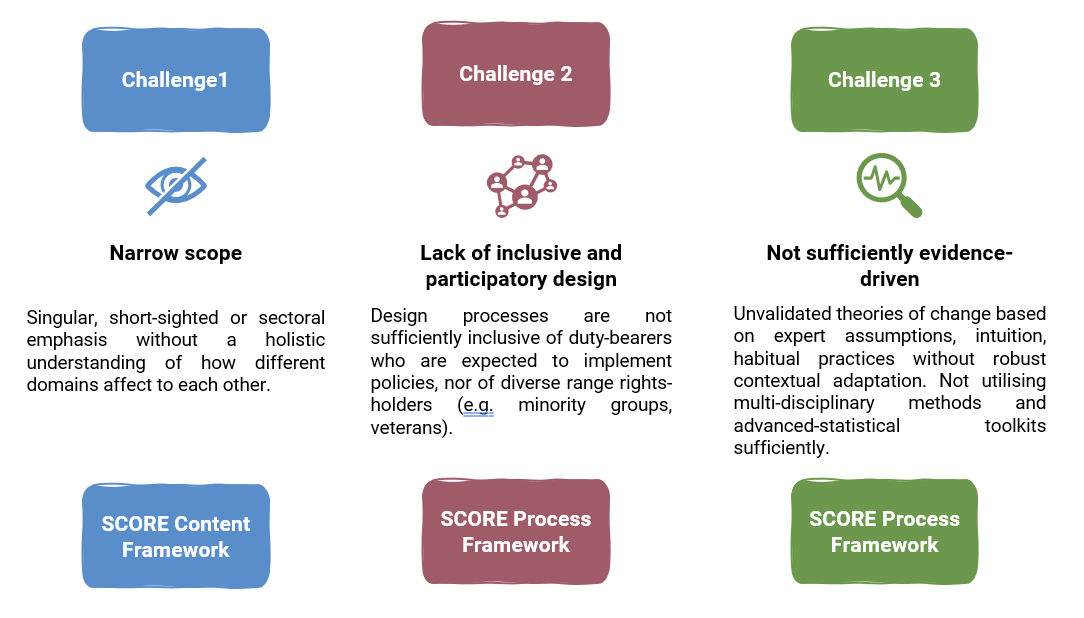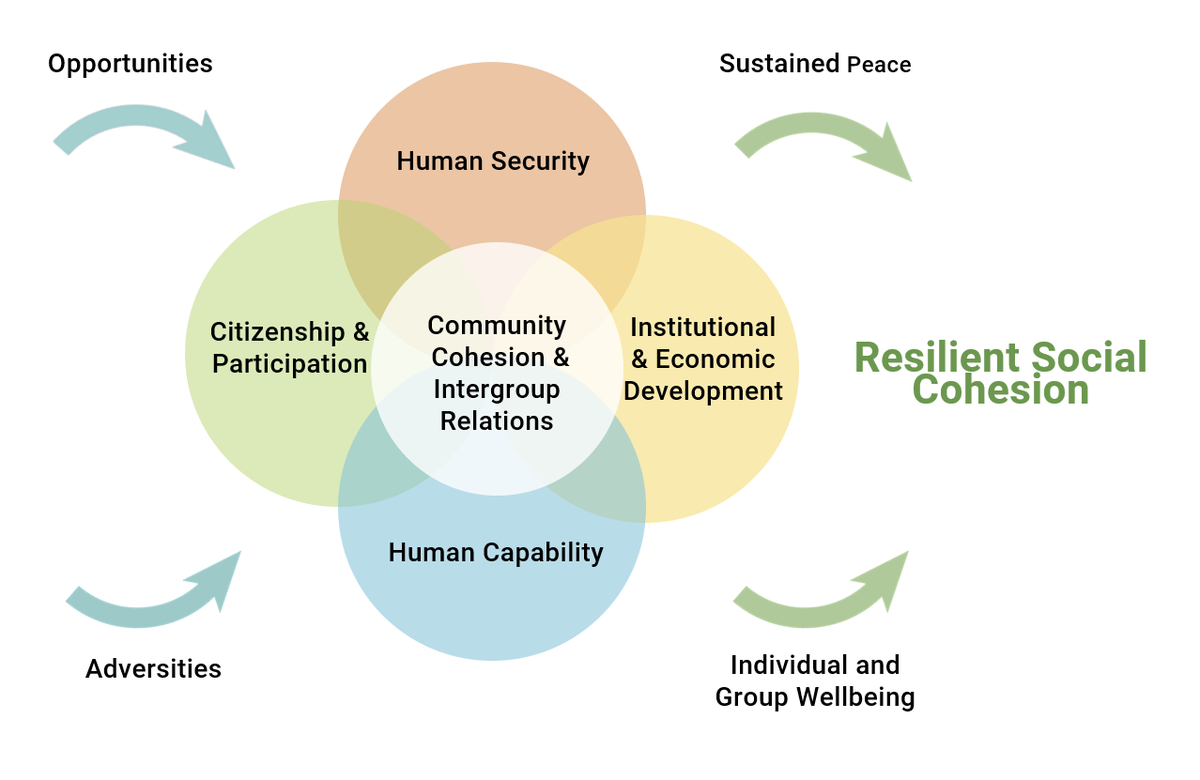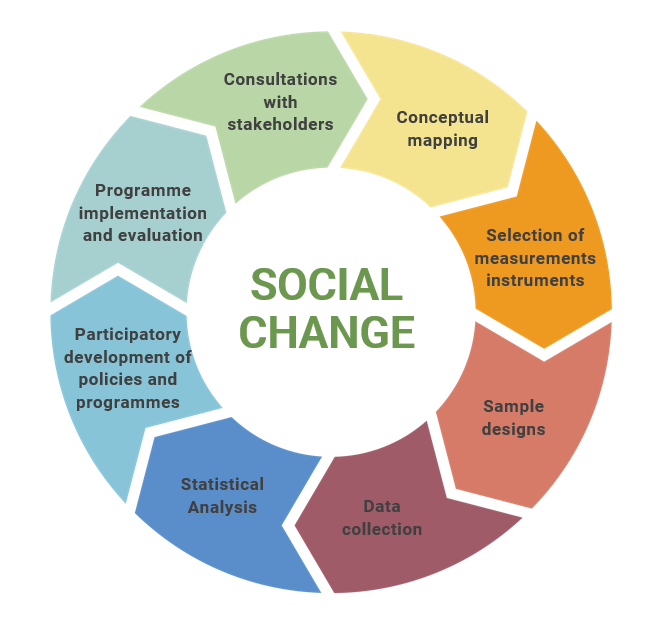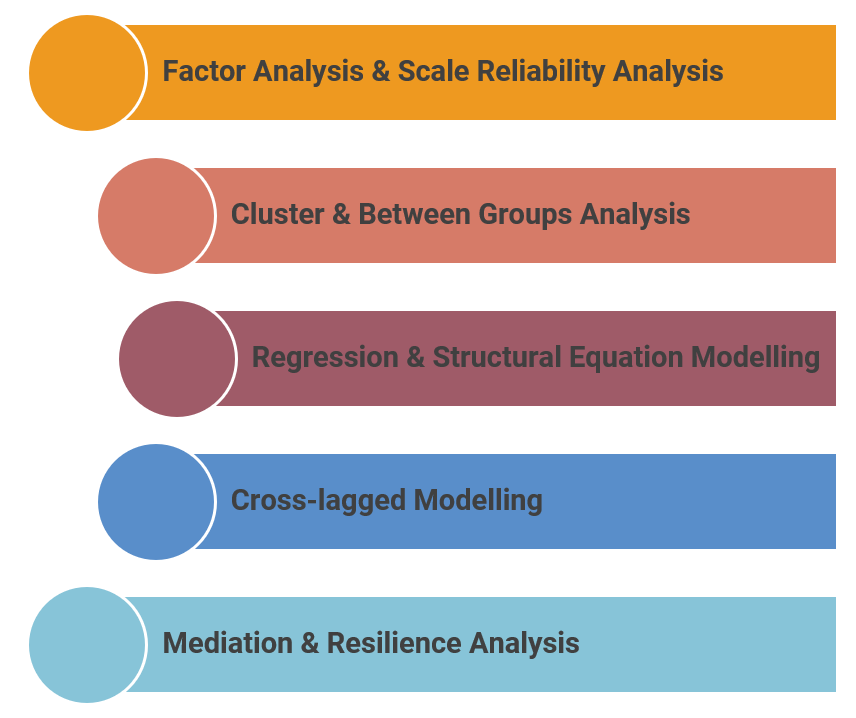Innovations Catalogue
Click here to download our Innovations Catalogue
The Centre for Sustainable Peace and Democratic Development (SeeD) works with international development organisations, governments and civil society leaders to design and implement evidenced-based strategies for positive social change. We use participatory research techniques and advanced analytical instruments to bridge the peacebuilding and development evidence gap, as we investigate and predict optimal pathways for sustaining peace. Our work contributes to the global debate on peace and development and our results help partners to promote the Sustainable Development Goals for building peaceful societies, empowering women and youth and improving constructive citizenship and civic belonging.
We work in five thematic areas: social cohesion and reconciliation, youth inclusion, gender empowerment, governance and anti-corruption and urban cohesion. Working in Europe, the Middle East, Africa and Asia, we provide evidence-based policy recommendations that are rooted in citizen engagement strategies and an empirical understanding of the behaviours of individuals, groups and communities.
We believe that a weak evidence-base and lack of meaningful participation undermine the impact and effectiveness of peace and development programmes and policies, and hinder coherent and precise responses to socio-political, economic and environmental challenges. The consequences of this failure are felt by millions of people worldwide as direct and indirects deaths due to poverty, war, displacement, marginalisation and terrorism have surged since the beginning of the century. However, the current system of peacebuilding and development has often failed to holistically investigate and address the inequalities, exclusion and intergroup tensions which fuel socio-political tensions that can turn into violent conflict.
Unfortunately, adversities and conflict are growing more interlinked and complex, while our resources to address them are growing more scarce. This leads to an increasing the demand for evidence-based policy-making and programming and hence an increasing demand for reliable and scientific data. Our approach addresses the need to better understand how the limited resources dedicated to peacebuilding can be potentially translated into high-impact results. The use of this evidence can be used by donors to guide funding decisions for development programmes.
Our methodology in a nutshell
Our methodology combines an extensive participatory research process with advanced data analysis to identify the drivers of dynamics that foster cohesion, resilience and peaceful social change. It draws inspiration from multiple scientific disciplines such as sociology, psychology, international relations and security studies and is flexible enough to incorporate new research findings, global policy guidelines and the realities of each local and regional context.
Our main and best known assessment instrument is called the The Social Cohesion and Reconciliation (SCORE) Index. SCORE is a smart and versatile assessment tool designed to measure different components of social cohesion as well as resilience capacities and vulnerability factors around the world in order to inform the efforts of peacebuilding and development actors with robust and scientific evidence. In order to achieve this ambitious goal, SCORE's departure point is Social COhesion and REconciliation, and the intricate relationship between them.
SCORE is underpinned by a Content Framework (social cohesion, reconciliation and resilience indicators) and Process Framework (how such indicators should be measured and calibrated) as well as an analytical toolkit.

The SCORE Content Framework focuses on different dimensions of societal functioning which can either contribute to stable, prosperous and resilient societies, or, if they remain unattended, undermine social cohesion and set the country on a course to violent conflict. We have developed over 200 indicators under each of these dimensions, and continue to design new ones as we calibrate the SCORE methodology to different contexts. SCORE's Content Framework underpin SeeD’s vision for resilient and cohesive societies that can mature through adversities and benefit from opportunities. Such societies require:
- Human capability. Society is made up of resourceful and well-adjusted people with cross-cutting life skills and relevant competencies for employability, citizenship and co-existence. Human capability is also interweaved with psychosocial assets, such as overall mental health and family coherence in order to better understand the extent to which citizens can mitigate challenges in daily life and draw support from close social networks.
- Human security. Members of society feel safe from threats of all kinds at the personal, economic, political and environmental level, and they are able to meet their basic needs to flourish.
- Community cohesion and harmonious intergroup relations. An outwardly expanding circle of connectedness, which begins at the family unit and radiates outwards towards supportive local communities, and harmoniously co-existing multicultural societies. This dimension also relates to identity formation and how people move from individual identities to group identities, and how different group identities contribute to either social cohesion or conflict in any given society.
- Institutional and economic development. This dimension constitutes both the backdrop and the outcome of human capability, community cohesion and human security. It relates to good governance structures, their representativeness, efficiency, accountability as well as provision of public and state services, from justice to health care.
- Meaningful civic participation and engagement. Active and constructive civic behaviours are important features of a healthy democracy where citizens have the skills and political space to influence decisions which affect their lives. This also calls for an in-depth understanding of civic attitudes and behaviours, as well as the mechanisms that can foster constructive citizenship.
Such societies, which experience trajectories of positive peace, individual wellbeing and social cohesion, are expected to be flexible and resilient in adapting to changing circumstances, whether these take the form of adversities or present as opportunities.

Instead of providing a precise prescription, SCORE methodology adopts a robust and versatile Process Framework. The SCORE Process Framework includes a diligent calibration phase where we customise and contextualise research design and our assessment metrics (e.g. indicators and scales). This participatory calibration phase from design to interpretation ensures local ownership of project results, capitalises on local expertise and alliances, and helps us align research objectives with the specific policy outcomes of different partners.


We deploy a wide range of advanced statistical analysis tools that allow us to provide evidence-based policy recommendations to partners that can help tailor precise interventions and predict entry points with the most likelihood of impact towards achieving social cohesion, and sustainable peace and development objectives.